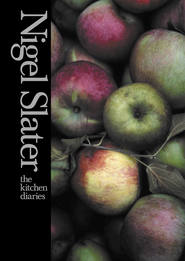
Полная версия:
The Kitchen Diaries

Nigel Slater is the author of a collection of bestselling books and presenter of BBC I’s Simple Cooking and Dish of the Day. He has been food columnist for the Observer for twenty years. His books include the classics Appetite and The Kitchen Diaries and the critically acclaimed two-volume Tender. His award-winning memoir Toast – the story of a boy’s hunger won six major awards and is now a BBC film starring Helena Bonham Carter and Freddie Highmore. His writing has won the National Book Award, the Glenfiddich Trophy, the André Simon Memorial Prize and the British Biography of the Year. He was the winner of a Guild of Food Writers’ Award for his BBC I series Simple Suppers.
Also by Nigel Slater
The Kitchen Diaries II
Tender Volumes I and II
Eating for England
The Kitchen Diaries
Toast – the story of a boy’s hunger
Thirst
Appetite
Nigel Slater’s Real Food
Real Cooking
The 30-Minute Cook
Real Fast Food
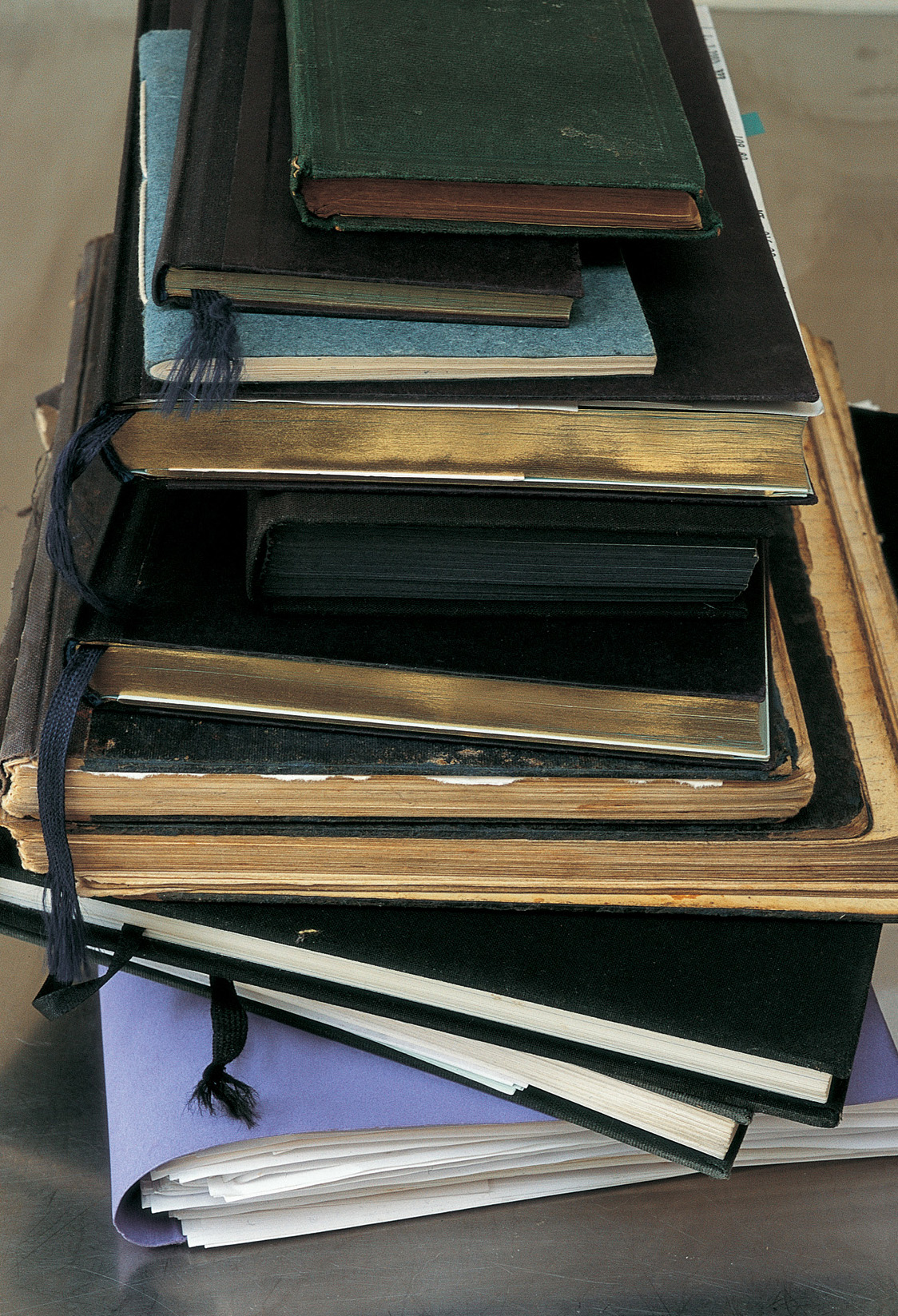
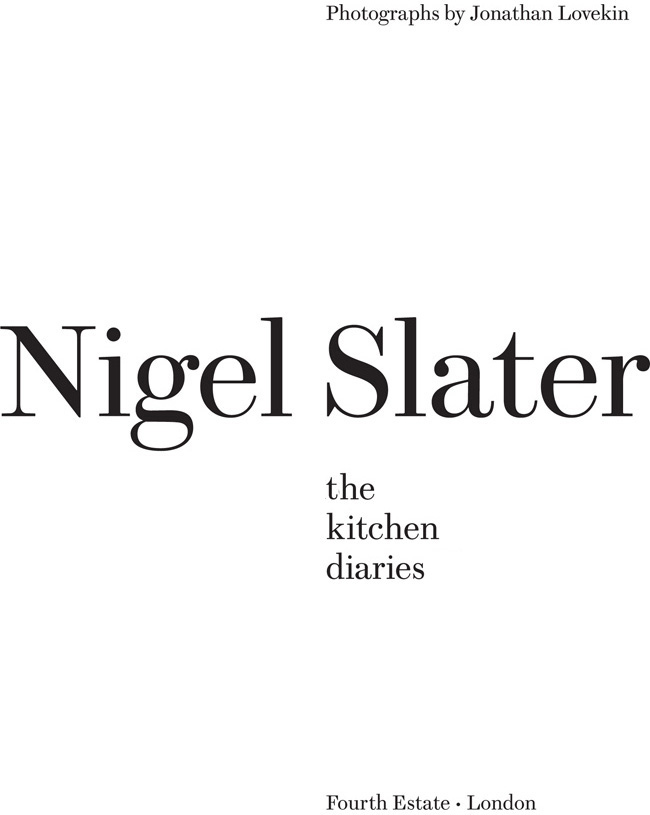
Contents
Acknowledgements
January
February
March
April
May
June
July
August
September
October
November
December
Copyright
About the Publisher
To Digger, Magrath and Poppy
And to Louise and Jonnie with love
With thanks to Sam Blok, Araminta Whitley,
Allan Jenkins,Nung Puinongpho,
Jane Middleton, Silvia Crompton, and to Rohan and Sophie,
and everyone at 4th Estate
Right food, right place, right time. It is my belief – and the point of this book – that this is the best recipe of all. A crab sandwich by the sea on a June afternoon; a slice of roast goose with apple sauce and roast potatoes on Christmas Day; hot sausages and a chunk of roast pumpkin on a frost-sparkling night in November. These are meals whose success relies not on the expertise of the cook but on the more basic premise that this is the food of the moment – something eaten at a time when it is most appropriate, when the ingredients are at their peak of perfection, when the food, the cook and the time of year are at one with each other.
There is something deeply, unshakeably right about eating food in season: fresh runner beans in July, grilled sardines on a blisteringly hot August evening, a bowl of gently aromatic stew on a rainy day in February. Yes, it is about the quality of the ingredients too, their provenance and the way they are cooked, but the very best eating is also about the feeling that the time is right.
I do believe, for instance, that a cold Saturday in January is a good time to make gingerbread. It is when I made it and we had a good time with it. It felt right. So I offer it to you as a suggestion, just as I offer a cheesecake at Easter, a curry for a cold night in April and a pale gooseberry fool for a June afternoon. It is about seasonality, certainly, but also about going with the flow, cooking with the natural rhythm of the earth.
Learning to eat with the ebb and flow of the seasons is the single thing that has made my eating more enjoyable. Our culinary seasons have been blurred by commerce, and in particular by the supermarkets’ much vaunted idea that consumers want all things to be available all year round. I don’t believe this is true. I have honestly never met anyone who wants to eat a slice of watermelon on a cold March evening, or a plate of asparagus in January. It is a myth put about by the giant supermarkets. I worry that today it is all too easy to lose sight of food’s natural timing and, worse, to miss it when it is at its sublime best. Hence my attempt at writing a book about rebuilding a cook’s relationship with nature.
The diary
I wanted to know exactly when I might find something at its glorious, juicy, sweetly flavoured peak. If something is to be truly, remarkably good to eat, then isn’t it worth knowing precisely when that moment might be? ‘Spring’ or ‘autumn’ has always been too vague for me. There is a vast difference between winter-spring and summer-spring. Even labelling raw ingredients by the month in which they are due to ripen is a bit hit and miss (I missed the damsons and the greengages one year relying on that premise). Anyone who has gone to a farmers’ market in the first week of May and again in the last week will know where I am coming from. It is like two completely different months.
That said, this is not a book whose dates are to be followed like a mantra. It is simply a book of suggestions for when you might, should you care to look, find gooseberries, sprouts, damsons etc. at their best. It is a guide to what is and isn’t worth eating and when. And I like to think that there are few things more worth knowing than that. It is not some tyrannical culinary calendar but a book to dip in and out of throughout the year and the years to come, a reminder to keep an eye out for something, a gentle – and, I hope, delicious – aide-mémoire.
The
photographs
The photography has been done in ‘real time’. So when it says October 2nd or April 9th, then that is when the picture was shot. After I have cooked each meal and it has been photographed, we sit down and eat it while it is still hot. Then I wash up. The pictures are taken at home, so if you recognise plates and pans from my books Real Food or Appetite, then that is because they are things that I have come to love and cherish. Whether it’s a vegetable peeler or a palette knife, it works for me and has become part of my life.
The food
For the most part I shop at small local shops, farmers’ markets, proper butcher’s, fishmonger’s, delicatessens and cheese shops rather than all at once on a weekly trip to a supermarket. I have honestly never set foot inside a branch of Tesco. This book is very much a gentle plea to buy something, however small, each day, to take time to shop, to treat it as a pleasure rather than a chore. This doesn’t mean I spend my life shopping, far from it. It simply means that I stock up on dry goods, such as rice, pasta and the like, once a week, then manage to find half an hour a day (sometimes less) to buy just one or two fresh things from someone who sells them with a passion and a specialist interest – easier than ever now that shops tend to stay open later.
A weekly trip to the farmers’ market forms the backbone of my fresh food shopping, plus I have a weekly ‘organic box’ delivered to my door. I love to see those tables laid out under striped awnings with food that is being sold by the people who made or picked it. Shopping at the farmers’ market means that you can buy your cream from the person who churned it, your potatoes directly from the people who dug them from the ground, your salad leaves from the guy who planted the seeds. Food with a story you can follow from seed packet to table, picked that day. This, to me, is as good as food shopping gets.
I feel that buying ingredients as fresh, as honest as this is a chance to cook them as simply as possible, to let the food taste of itself, to allow it to be what it is.
The kitchen
My kitchen is not large, but a trio of skylights and the fact that the doors open up to the garden make it a hugely pleasurable place in which to cook. It has no fancy cookers, no batterie of expensive equipment, yet it has been thoughtfully and intelligently designed. The space works perfectly. Good kitchens are not about size, they are about ergonomics and light.
The garden
My garden is a tiny urban space, yet it has been crucial to this book. Leading down from the kitchen doors are steps on which rest pots of thyme and single marigolds, dark red pelargoniums and Italian aubergines. There is an old stone terrace where we eat in summer round a zinc-topped table set under a fig tree. The terrace makes way for a small, rather amateurish potager, with six little beds filled to overflowing. Two for pot-herbs, roses and old-fashioned scented pinks, one each for raspberries and currants, another for tomatoes and courgettes and one for runner beans, broad beans, artichokes and rhubarb. In amongst the chaos grow sweet peas, dahlias, nasturtiums and opium poppies.
Beyond that is a miniscule wooded patch, no deeper than twelve feet, with a tangle of plum, damson, hazelnut and quince trees, plus wood strawberries and, in winter, snowdrops growing underfoot. What I should emphasise is just how small this garden is. So when I refer to the ‘kitchen garden’, I am talking about a diminutive patch probably about the same size as the average allotment. I make no attempt to be self-sufficient, I simply haven’t the space. It is just that by growing something myself, from seed or a small plant, I feel closer to understanding how and when a pear, a medlar, a broad bean or a raspberry is at its best.
Anyone who has ever grown anything for themselves, or simply has an old apple tree in the garden, will know that you often end up with a glut – too much of the same ingredient at the same time. I was keen to reflect this in The Kitchen Diaries, so there are months where there may be a bounty of tomato recipes, others where almost every week seems to feature raspberries in some form or another. If you make the most of the good prices that go hand in hand with a glut at the market, or you want to use every bit of the ripe fruit and vegetables in your garden, then you will welcome this. Personally, I think of it as something of a glorious seasonal feast.
Roast rhubarb on a January morning; ‘pick-your-own’ strawberries in June; a piece of chicken on the grill on an August evening; a pot-roast pigeon on a damp October afternoon; a pork feast in November. This is more than just something to eat, it is food to be celebrated, food that is somehow in tune with the rhythm of nature. Quite simply, the right food at the right time.
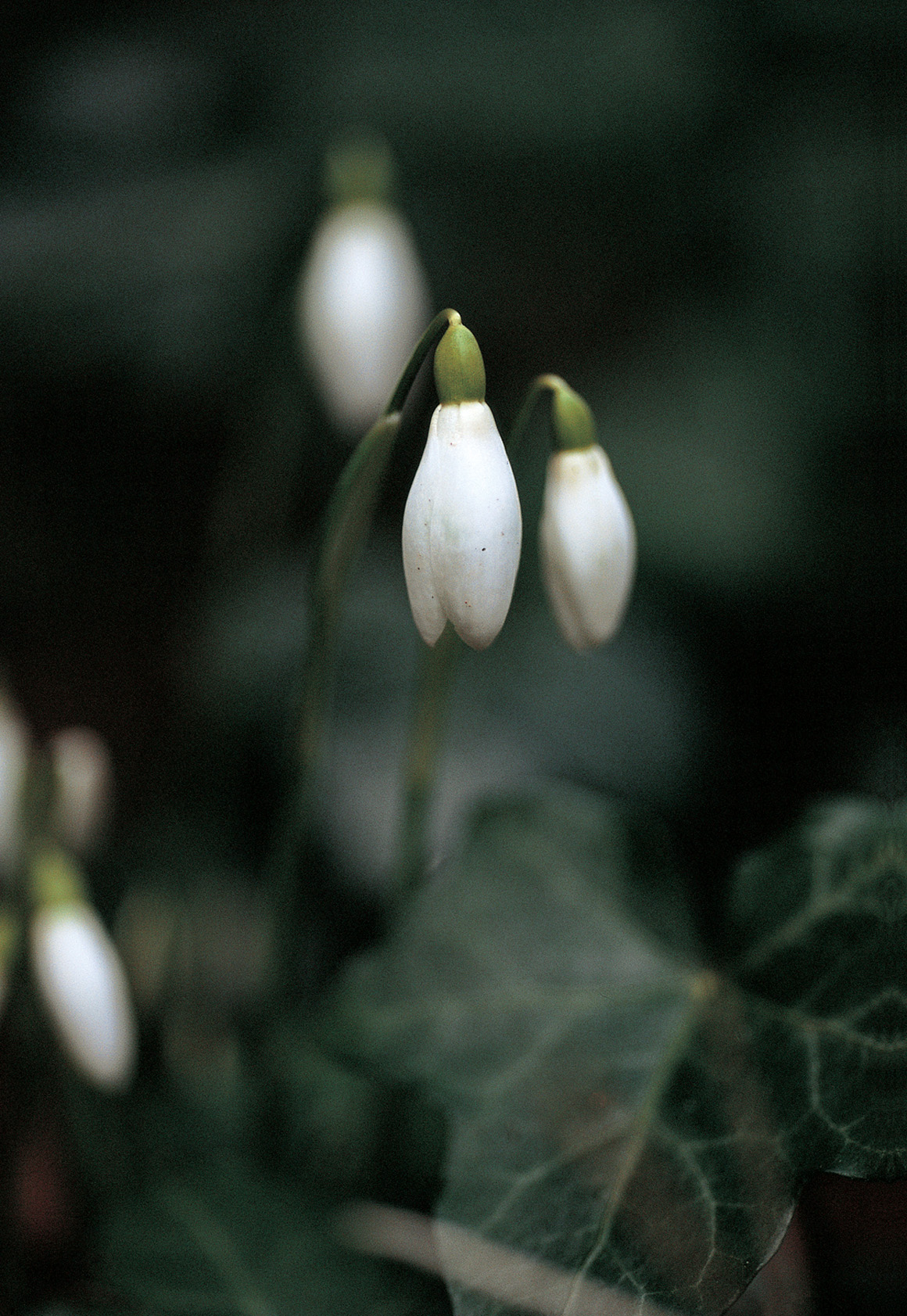
january
Dal and pumpkin soup
A salad of fennel, winter leaves and Parmesan
Stew
A frosted marmalade cake
Frozen yoghurt with roast rhubarb
Double ginger cake
Onion soup without tears
Cheese-smothered potatoes
A velvety soup for a clear, cold day
Bulghur wheat with aubergines and mint
A really good spaghetti Bolognaise
Chicken broth with noodles, lemon and mint
Spiced crumbed mackerel with smoked paprika
A herb butter for grilled chops
A pot-roast pheasant with celery and sage
A clear, hot mussel soup
Sausages with salami and lentils
A lime tart
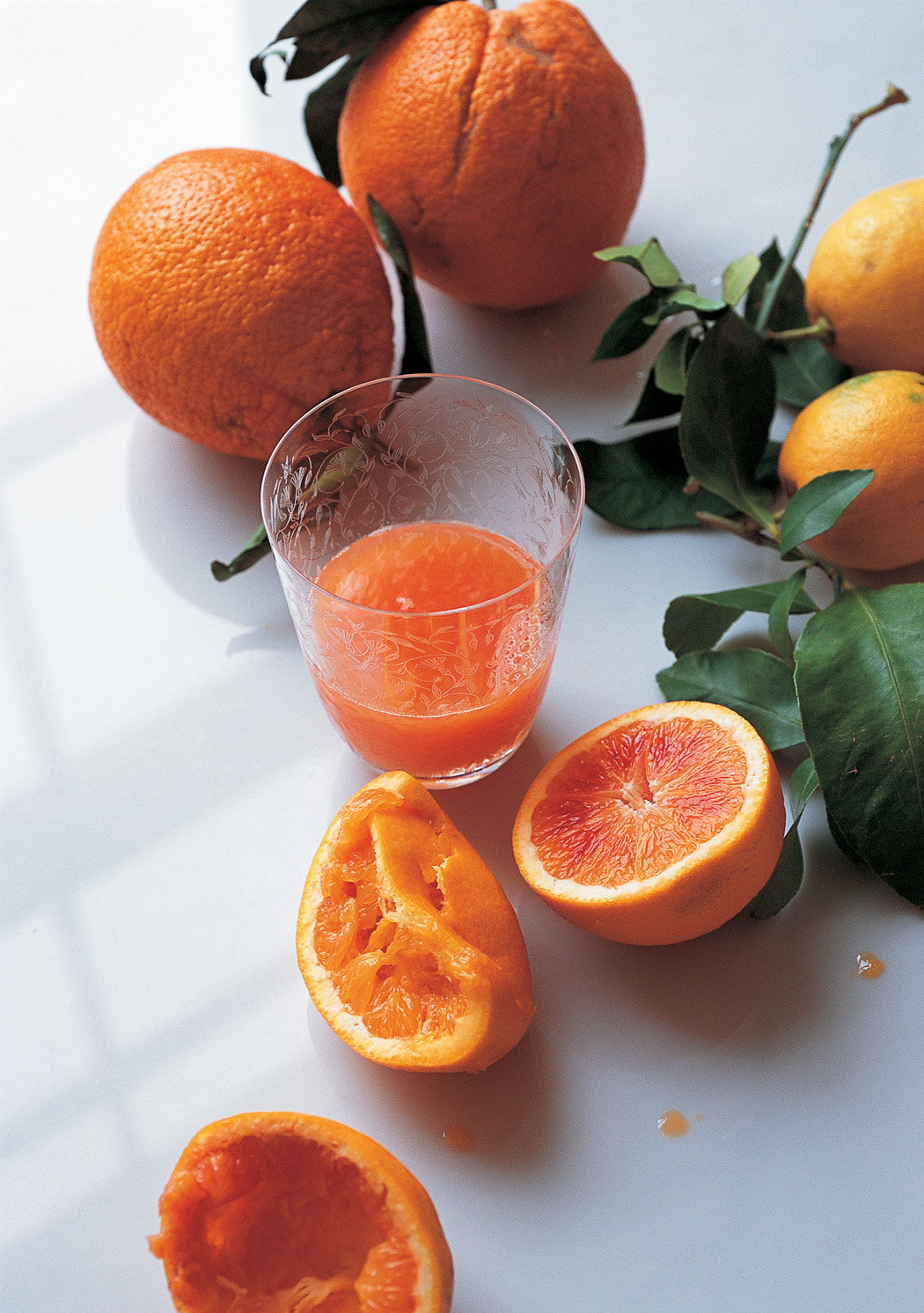
New Year’s
Day. A day
of hope and
hot soup
There is a single rose out in the garden, a faded bundle of cream and magenta petals struggling against grey boards. A handful of snowdrops peeps out from the ivy that has taken hold amongst the fruit trees. The raspberry canes are bare, save the odd dried berry I have left for the birds, and the bean stems stand brown and dry around their frames. A withered verbena’s lemon-scented leaves stand crisp against a clear, grey sky. January 1st is the day I prune back the tangle of dried sticks in the kitchen garden, chuck out anything over its sell-by date from the cupboards, flick through seed catalogues and make lists of what I want to grow and eat in the year to come. I have always loved the first day of the year. A day ringing with promise.
I bought little between Christmas and New Year, just salad and a few herbs, preferring to make do with larder stuff: white beans and yellow lentils, parsnips and a forgotten pumpkin, tins of baked beans, dried apricots and hard, chewy figs. There is still a crumbling wedge of Christmas cake, some crystallised orange and lemon slices, a few brazils to which I cannot gain entry and a handful of tight-skinned clementines. A feast of sorts, but what I need is a hot meal.
There is juice for breakfast, blood orange, the dull fruit brushed with scarlet and still sporting its glossy green leaves. It’s a bracing way to start a new year. I make a resolution to eat less but better food this year: to eat only food whose provenance I know at least a little of; to patronise artisan food producers; to increase my organic food consumption; and to shop even less at supermarkets than I do now. This should be the year in which I think carefully about everything I put in my mouth. ‘Where has this come from, what effect will this have on me, my well-being and that of the environment?’ Ten years ago this would all have sounded distinctly worthy, but today it just sounds like a blueprint for intelligent eating.
I have a tradition of making soup on New Year’s Day, too: green lentil, potato and Parmesan, noodle broth and this year red lentil and pumpkin. It is a warm ochre soup, soothing, yet capable of releasing a slow build-up of heat from its base notes of garlic, chilli and ginger; a bowl of soup that both whips and kisses.
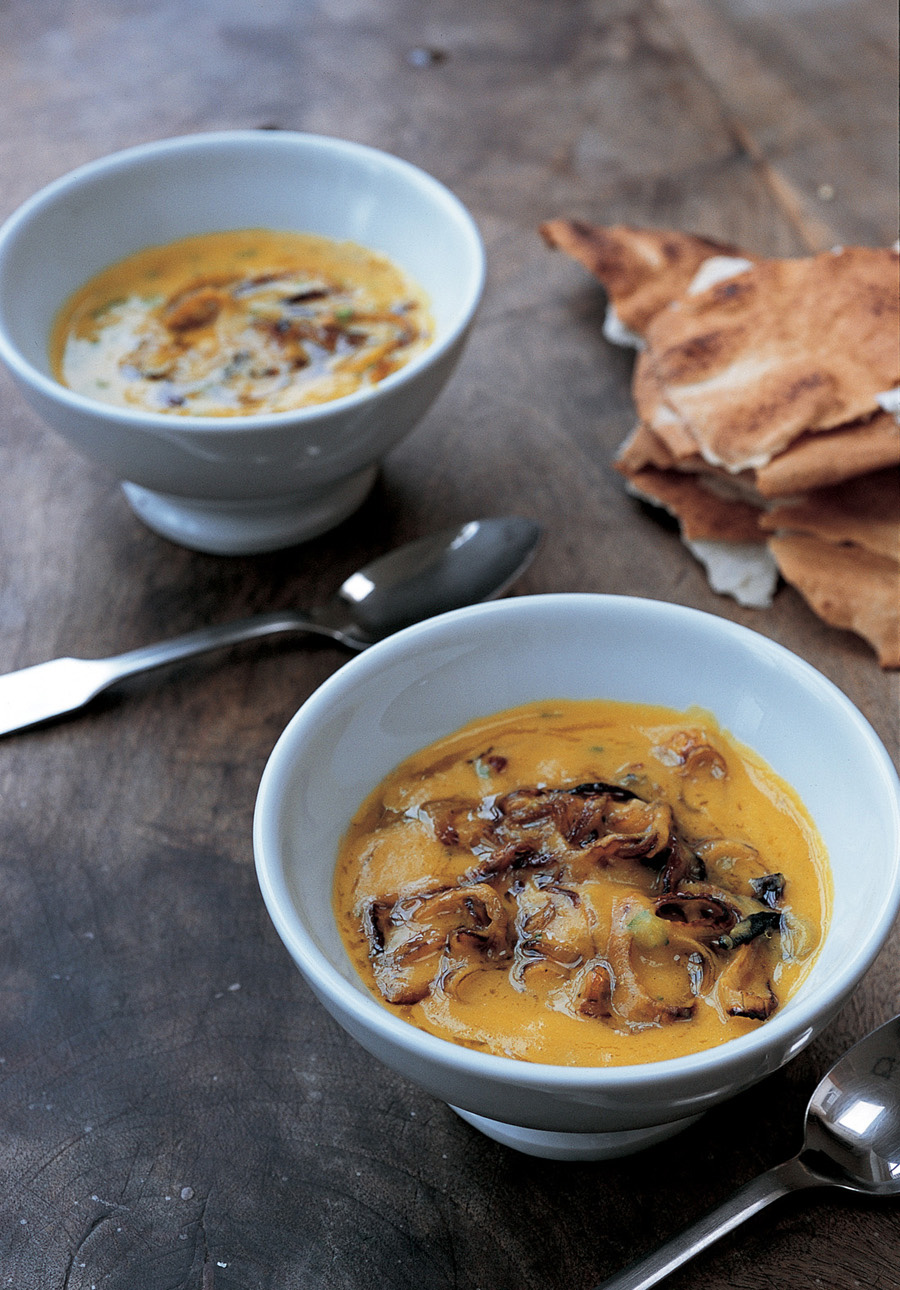
Dal and pumpkin soup
a small onion
garlic – 2 cloves
ginger – a walnut-sized knob
split red lentils – 225g
ground turmeric – a teaspoon
ground chilli – a teaspoon
pumpkin – 250g
coriander – a small bunch, roughly chopped
For the onion topping:
onions – 2 medium
groundnut oil – 2 tablespoons
chillies – 2 small hot ones
garlic – 2 cloves
Peel the onion and chop it roughly. Peel and crush the garlic and put it with the onion into a medium-sized, heavy-based saucepan. Peel the ginger, cut it into thin shreds and stir that in too. Add the lentils and pour in one and a half litres of water. Bring to the boil, then turn the heat down to an enthusiastic simmer. Stir in the ground turmeric and chilli, season and leave to simmer, covered, for twenty minutes.
While the soup is cooking, bring a medium-sized pan of water to the boil. Peel the pumpkin and scoop out the seeds and fibre, then cut the flesh into fat chunks. Boil the pumpkin pieces for ten minutes, until they are tender enough to take a skewer without much pressure. Drain them and set them aside.
To make the onion topping, peel the onions and cut them into thin rings. Cook them in the oil in a shallow pan until they start to colour. Cut the chillies in half, scrape out the seeds and slice the flesh finely. Peel and finely slice the garlic and add it with the chillies to the onions. Continue cooking until the onions are a deep golden brown. Set aside.
Remove the lid from the lentils and turn up the heat, boiling hard for five minutes. Remove the pan from the heat, then add the drained pumpkin. Put the soup through the blender (for safety, a little at a time) until smooth, then pour it into a bowl. Stir in the roughly chopped coriander and check the seasoning. I find this soup likes a more generous than usual amount of salt.
Serve in deep bowls with a spoonful of the spiced onions on top.
Makes 4 good-sized bowls
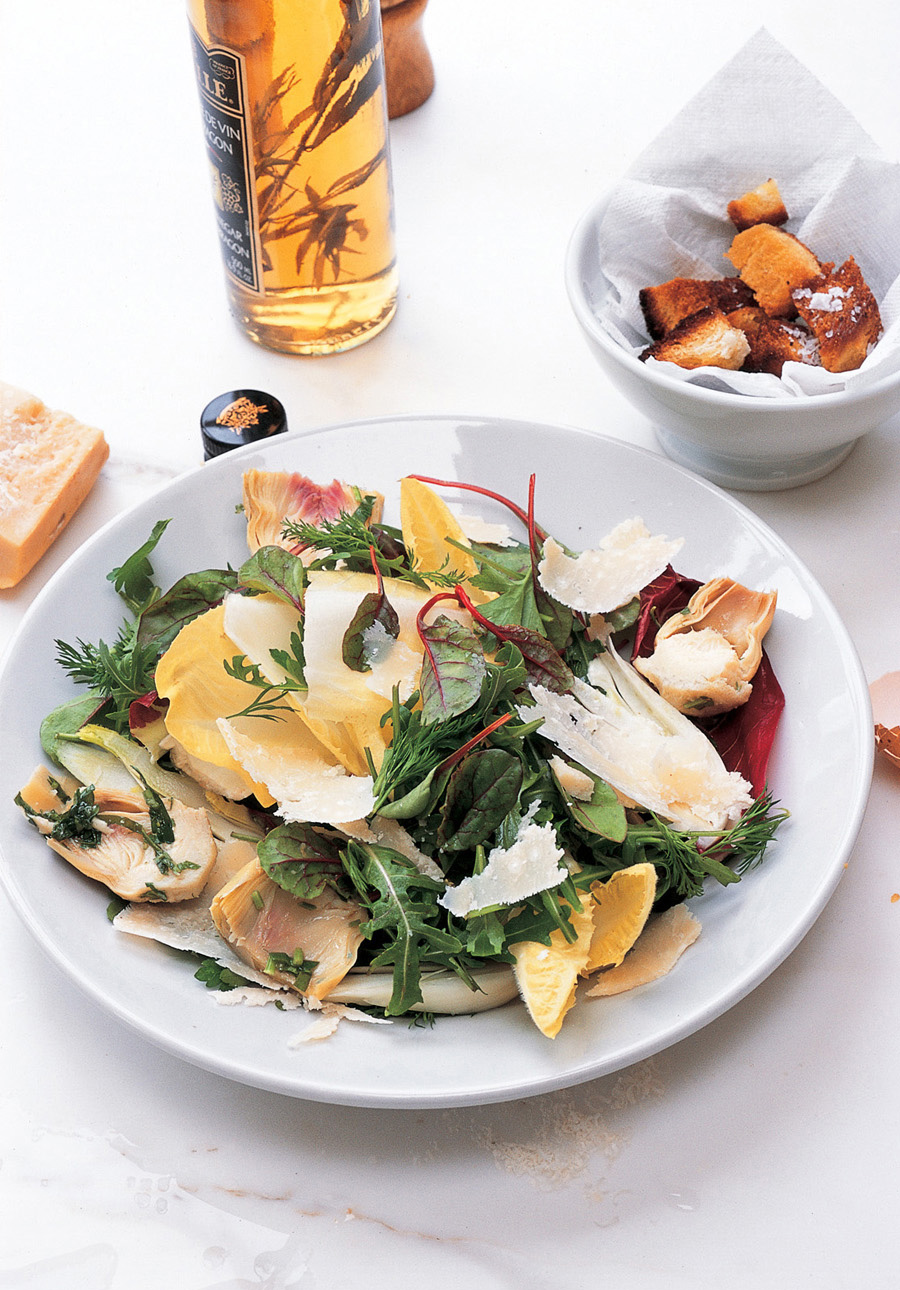
A salad of fennel, winter leaves and Parmesan
tarragon vinegar – 1 tablespoon
Dijon mustard – a teaspoon
an egg yolk
olive oil – 100ml
grated Parmesan – 3 tablespoons
lemon juice – 2 teaspoons
thick slices of white bread – 2
olive oil for frying the bread
1 medium fennel bulb
small, hot salad leaves such as rocket and watercress – 4 double handfuls
a block of Parmesan for shaving
Make the dressing by whisking the vinegar, mustard, egg yolk and olive oil together with a little salt and black pepper, then beating in the grated cheese. Squeeze in the lemon juice, stir and set aside for a few minutes.
Cut the bread into small squares and fry in shallow oil till golden on all sides. Drain on kitchen paper. Slice the fennel finely; it should be almost fine enough to see through. Toss it with the salad leaves and the dressing. Pile the salad on to two plates, then shave pieces of Parmesan over with a vegetable peeler. I usually do at least eight per salad, depending on my dexterity with the peeler. Tip the hot croûtons over the salad and eat straight away whilst all is fresh and crunchy.
Enough for 2
January 4
A salad of
winter
cabbage and
bacon
We have the first porridge of the year, made with medium oatmeal and water and drizzled with heather honey and several spoonfuls of blueberries. Supper is a tightwad affair of shredded winter cabbage, steamed till just bright and almost tender, tossed with shredded bacon rashers and their hot fat spiked with a dash of white wine vinegar. What lifts this from the mundane is the fact that I keep the cabbage jewel bright and use the best, lightly smoked bacon in generous amounts. A few caraway seeds add a nutty, almost musky flavour. Not the sort of thing to serve to guests but fine for a weekday supper.
Afterwards we eat slices of lemon tart from the deli.
January 6
Grilled mushrooms tonight, slathered with some of that garlicky French cream cheese from the corner shop and stuffed inside a soft burger bun. A TV supper of the first order, especially the bit where the cream cheese melts into the cut sides of the toasted bun.
January 7
Frugal, pure
and basic
food for a
rainy night
I try to prune the raspberry patch whilst being buffeted by high winds; sacks, buckets and even the watering can being blown across the garden. It is this annual task, and that of pruning the fruit trees in the thicket at the end of the garden, that is the turning point in the year for me. Seeing the neatly trimmed canes and the newly shorn branches of the young quince, medlar and mulberry trees is what rings in the new year for me rather than the bells, whoops and popping corks of New Year’s Eve. Anyway, Auld Lang Syne always makes me want to burst into tears.
Pruning holds no fears for me. It is a job I look forward to almost more than any other. The crisp snap of secateurs slicing through young rose-pink and walnut-coloured wood brings the possibility that this year I might actually manage to control this downright wayward kitchen garden. A garden where dahlias poke through blackcurrant bushes and dark purple clematis rambles through damson trees. Pruning makes me think, however briefly, that I am in charge.
But I give up after an hour or two, the wind thrashing the swaying and heavily thorned raspberry canes across my face just once too often. I go in and toast crumpets, then make a stew and an orange-scented cake.
Stew
pot barley – 100g
onions – 3 medium
celery – 2 large stalks
a large parsnip
carrots – 2
potatoes – 4–5 medium
neck of lamb chops – 8 thick ones
a few sprigs of thyme and a couple of bay leaves
white pepper
water or stock to cover
parsley – a small handful
Boil the pot barley in unsalted water for a good twenty-five minutes, then drain it.
Get the oven hot. It needs to be at 160°C/Gas 3. Peel the onions and slice them into thick rings. Cut the celery into short lengths. Peel the parsnip, carrots and potatoes and cut them into fat chunks. That’s 2–3cm if you are measuring. Pile the vegetables into a large, deep pot, then tuck in the chops, thyme and bay leaves. Season with a little white pepper, no salt, then pour in the drained barley and enough water or stock to cover the meat and vegetables completely. Bring it slowly to the boil.
Skim off the worst of the froth that has accumulated on the surface, easily done with a ‘holey’ spoon. Cover the top of the stew with a sheet of greaseproof paper, then with a lid. Transfer the pot to the oven and leave it there, untouched or fiddled with, for a good two hours.
Remove the lid. The liquor should be thin, thickened only slightly by the potatoes. Chop the parsley and mix it in carefully, so as not to smash the vegetables, then season with salt and black pepper.
Leave overnight. Next day, skim the fat from the top, then reheat slowly on the stove till the meat is thoroughly hot and the broth gently bubbling. Check the seasoning – be generous – and serve piping hot.
Enough for 4
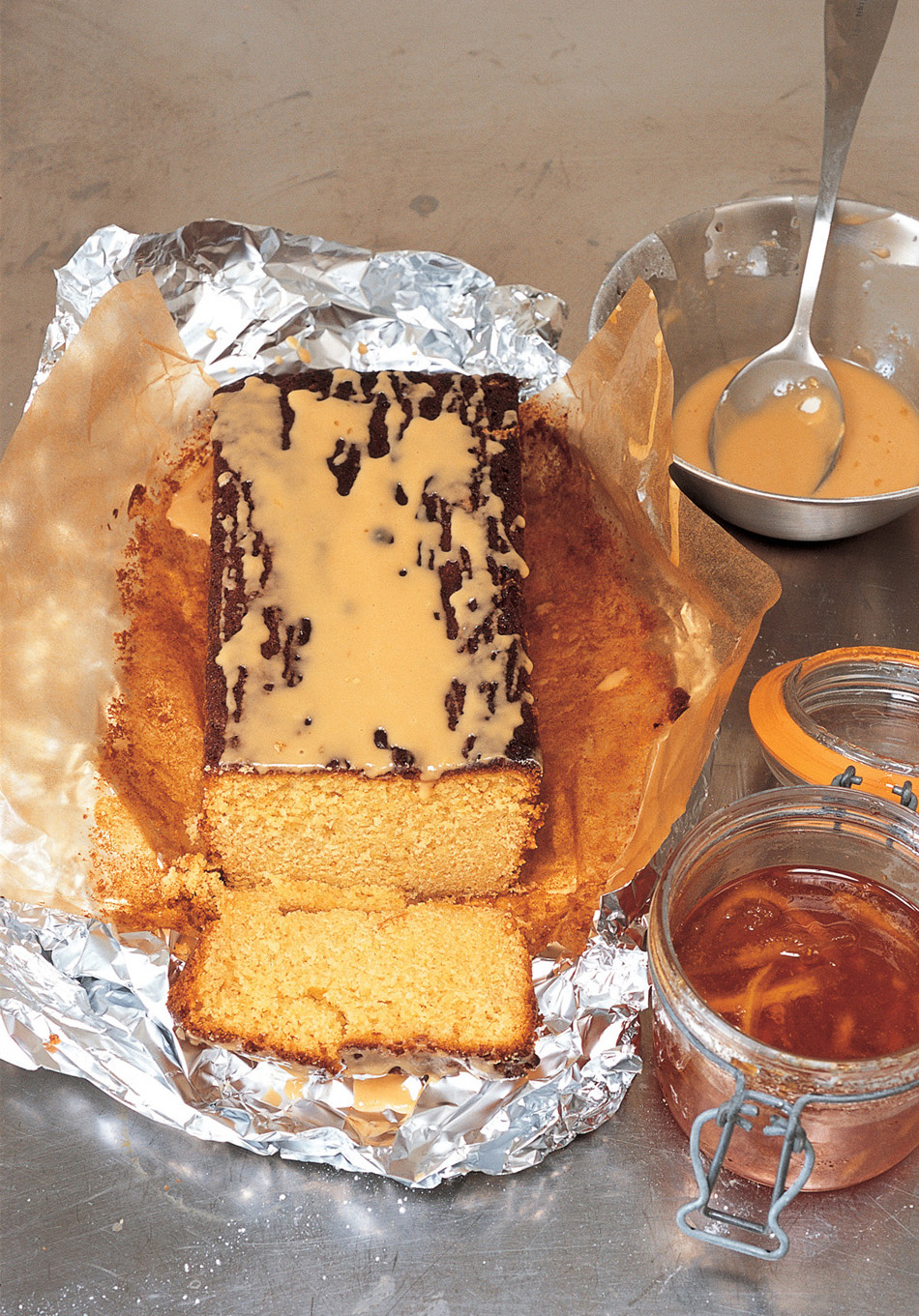
A frosted marmalade cake
I don’t, as a rule, like icing. Yet on a home-made cake, drizzled over so that it sets wafer thin, it adds a welcome contrast to the soft sponge. You could use water to mix the icing but I prefer to use fruit juice, occasionally adding a hint of orange blossom water to perfume each slice of cake.
butter – 175g
golden unrefined caster sugar – 175g
a large orange
eggs – 3 large
orange marmalade – 75g
self-raising flour – 175g
For the frosting:
icing sugar – 100g
orange juice – 2 tablespoons
Set the oven at 180°C/Gas 4. Line a loaf tin about 25 x 11cm and 7cm deep. Put the butter and sugar in a food mixer and beat till pale and fluffy. Finely grate the orange. Break the eggs into a small bowl and beat them lightly with a fork. With the machine set at moderate speed, pour in the beaten egg a little at a time, beating thoroughly between each addition. Beat in the marmalade and the grated orange zest.
Remove the bowl and fold in the flour with a large metal spoon. Do this slowly, firmly but carefully, till there is no sign of any flour. Lastly, gently stir in the juice of half the orange. Spoon the mixture into the lined tin, lightly smoothing the top. Bake for forty minutes, checking it after thirty-five with a metal skewer. Leave to cool in the tin – it will sink slightly – then remove and cool completely on a wire rack.
Sift the icing sugar and mix it to a smooth, slightly runny consistency with as much of the remaining orange juice as it takes – probably just under two tablespoons. Drizzle the icing over the cake, letting it run down the sides, and leave to set.



